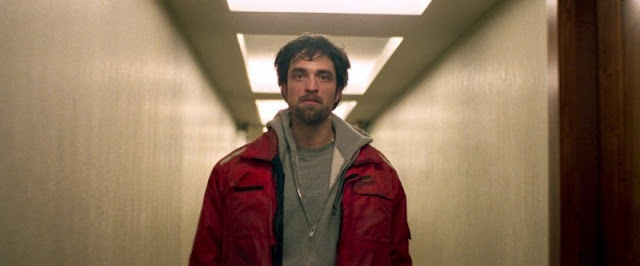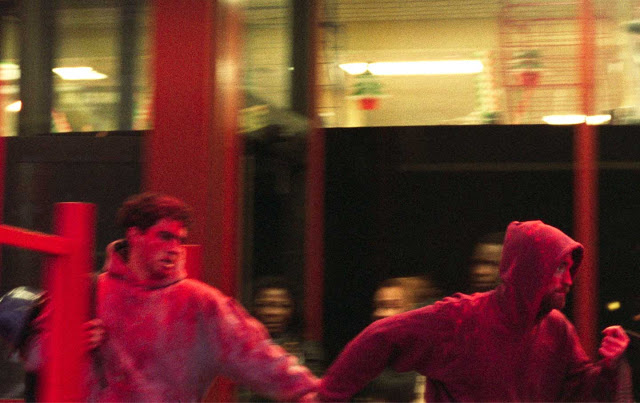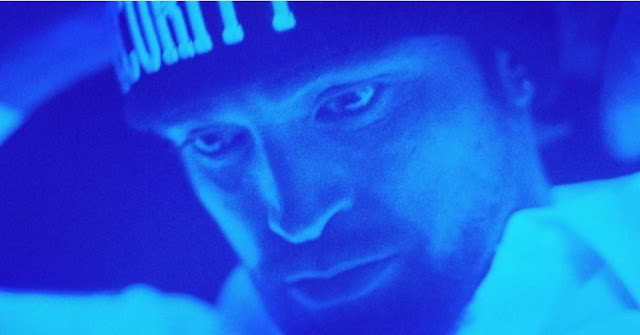I’ll say this for Good Time: It has personality. Awash in a toxic sludge of neon and grime, it is a distinctive, assaultive film, made with energy and aggression by its sibling directors, Josh and Benny Safdie. It is also a deeply unpleasant experience, and not in the way it seeks to be. Desperate to rattle you with its jittery style and glammed-up ugliness, Good Time instead just feels punishing and self-indulgent, mistaking excess for excitement and confusing shock with craft.
In their previous feature, Heaven Knows What, the Safdies explored the agony of urban drug addiction, plucking actual addict Arielle Holmes off the street and then building a movie around her sad circumstances. (Holmes went on to appear as one of Andrea Arnold’s itinerant magazine salespeople in American Honey.) Most critics praised Heaven Knows What for its grubby authenticity, but I found it cold, slack, and unrelentingly miserable. I feel much the same about Good Time, which is marginally less bleak and slightly more polished but shares with its predecessor a defiant disregard for visual coherence. Working again with cinematographer Sean Price Williams (who also shot Alex Ross Perry’s Queen of Earth), the Safdies favor extreme, unsteady close-ups, the camera hovering near the characters’ faces like a drunken dermatologist. Some might call this approach intimate. I’d call it a mess.
Which may not even count as an insult. To the Safdies, sloppiness is not a shortcoming but a conscious aesthetic choice, a proud expression of their vérité street cred. For their prior films, this may have been a matter of necessity; Heaven Knows What was shot on a shoestring and featured a largely nonprofessional cast. Here, they’re working with a substantially larger budget, but they refuse to use their newfound funds to refine their carelessness. Instead, they magnify it.
This is especially frustrating because Good Time confirms that its directors, when they aren’t shoving their slipshod masculinity in your face, are not untalented. There are glimmers of beauty here, as when the Safdies compose a few blessedly static overhead shots (men running through a parking lot, cars streaking down a darkened highway). These fleeting instances of relative clarity serve as a reprieve from the film’s prevailing atmosphere of brutish indiscipline.
That wildness extends to the story, a rather typical “one bad night” odyssey that, while familiar, is reasonably compelling on the page. After an unnerving opening scene in a therapist’s office, Good Time opens with a strangely lethargic bank robbery perpetrated by Connie (Robert Pattinson) and his mentally handicapped brother, Nick (Benny Safdie, who also shares an editing credit with Ronald Bronstein, who in turn co-wrote the screenplay with Josh Safdie). After Nick is captured by the police, Connie—fearful that his brother will be beaten or worse in jail—scrambles to cobble together his bail money.
Thus begins a shambling, episodic narrative, in which Connie faces one setback after another as he races through Queens, the sky growing darker and his prospects growing dimmer. The first name included in the closing credits’ “Special Thanks” section is Martin Scorsese, and Good Time pays obvious tribute to Marty’s early New York classics, attempting to evoke the animalistic intensity of Mean Streets and the crushing loneliness of Taxi Driver. (Its compressed timeline and helpless hero also recall Bringing Out the Dead.) And for its first half hour or so, if you can ignore the shoddy camerawork, Good Time functions as a passable approximation of an interesting movie, a scuzzy nightmare fueled by a poisonous cocktail of desperation, rage, and adrenaline. Connie, frantic and volatile but also plainly intelligent, uses his feral charm to manipulate the various people he meets, including a quasi-squeeze (Jennifer Jason Leigh, reaching back to channel her Big Apple anguish from Last Exit to Brooklyn) and an impressionable teenager (newcomer Taliah Webster, quite good), the latter of whom seems as astonished by Connie as she is attracted to him.
Not without cause. The only real reason to see Good Time—unless you’re the type of viewer who enjoys watching people fall from high-rises or get mauled by pit bulls—is for Pattinson’s propulsive performance. Much like former co-star Kristen Stewart, the actor continues to sprint as far as possible from the franchise that made him a heartthrob and a punch-line, having recently taken unconventional supporting roles in movies good (The Lost City of Z), bad (Maps to the Stars), and weird (The Rover). Here, he leverages his pouty good looks to impressive effect, turning Connie into a tragic figure who’s sexy, sympathetic, and a little scary. There’s still a hint of that Edward Cullen brood underneath the stubble and the dyed blond hair, but mostly there are snappish smarts and furious resolve. It’s a steadying performance that does its best to glue the film together, even as the Safdies endeavor to rip it apart and turn it into hyperactive mush.
Eventually, they succeed, and it isn’t hard to pinpoint when the battle is lost. After learning that Nick has been injured and transported to the local hospital, Connie sneaks in and breaks him out, only to discover hours later that the masked and handcuffed man he (all too easily) liberated isn’t Nick at all, but Ray, a manic junkie. That’s bad news for Connie, but it’s worse news for us. That’s because Ray is played by Buddy Duress, a reformed addict who stumbled into a leading role in Heaven Knows What and whose life story to this point has been tumultuous. I’m happy for Duress that he’s apparently kicked his habit, but it hasn’t made him an especially skilled actor. His performance in Good Time is a screeching failure—loud, slovenly, and decidedly unmodulated. You might argue that Duress is simply playing the character as written—Ray isn’t exactly designed to be a beacon of counsel and thoughtfulness—but his antics are distracting rather than convincing. Some antagonists are furiously watchable in their awfulness; Duress’ banality is actively repellent.
The same goes for most of Good Time, a dirty piece of pseudo-provocative pulp (is it a coded attack on America’s inequitable bail system? Who can tell?) that is somehow both excessively stylized and cheaply amateurish. In a sense, the movie’s microcosm is its score, composed by the electro-noise outfit Oneohtrix Point Never, aka Daniel Lopatin. The film is drowning in music, but while Lopatin delivers the occasional hypnotic passage, he mostly makes you suffer, pummeling you with off-kilter synths and whirring drone. It’s tonally consonant with the Safdies’ bellicose philosophy, but it’s also further evidence of Good Time’s squandered potential. There’s a shriveled heart somewhere at the center of this movie; after all, Connie just wants to do right by his brother. But the Safdies have no interest in doing right by you.
Jeremy Beck is the editor-in-chief of MovieManifesto. He watches more movies and television than he probably should.



